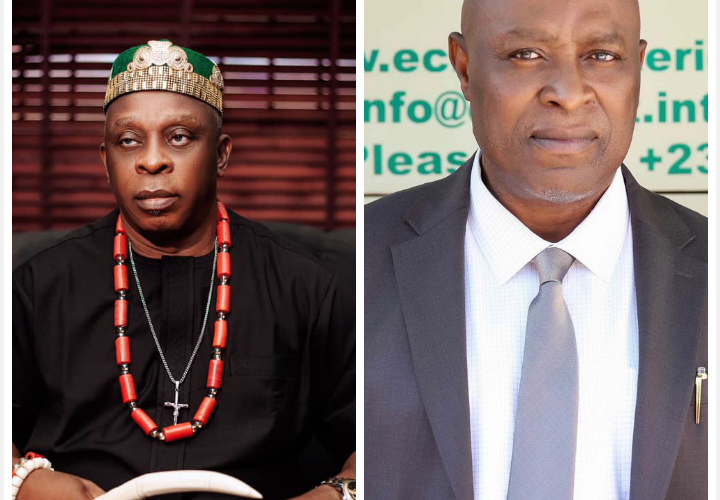Rebuttal: The Southeast Must Chart Its Own Economic Path
Dr. Engr. Odo Ijere’s response to Professor Bernard Odoh’s call for human capital investment in the Southeast is passionate, yet it rests on a foundation of historical grievances rather than practical solutions. While it is undeniable that the Igbo people have faced structural and institutional challenges in Nigeria, the argument that external forces alone are responsible for economic disparities is both defeatist and counterproductive. If anything, history—both global and regional—has shown that societies that rise above their historical disadvantages do so by embracing pragmatic, forward-looking strategies rather than dwelling on past injustices.
The Chinese example is a compelling one. As recently as the year 2000, China was far behind the Western world in economic and technological development. Its per capita income was a fraction of that of the United States and Europe. The West had, for centuries, dominated China through economic and political interventions, from the Opium Wars to the Unequal Treaties. Instead of fixating on historical grievances, China embarked on a rigorous program of economic self-reliance, internal restructuring, and strategic investments in human capital. The result? In just two decades, China overtook Japan to become the world’s second-largest economy and is now challenging the U.S. for the top spot.
Similarly, the Southeast of Nigeria cannot afford to base its economic strategy on lamentations about the Civil War or historical injustices. While these events shaped the region’s past, they do not have to define its future. The world does not reward victimhood; it rewards innovation, adaptability, and strategic planning.
Debunking the Civil War Dependency Narrative

It is misleading to claim that the Igbo economy is struggling primarily because of the Civil War and its aftermath. If this were the sole determinant of economic progress, then the Jewish people—who suffered the Holocaust—would not be one of the most prosperous groups globally. The Germans, who lost World War II and suffered destruction on an unprecedented scale, would not have rebuilt their economy into Europe’s largest. Even Vietnam, a country that suffered a brutal war with the U.S., has emerged as a fast-growing manufacturing hub in Southeast Asia.
The Southeast has long moved past the immediate consequences of the war. In fact, Igbo entrepreneurship, which was evident before the war, has continued to thrive despite the limitations of the Nigerian system. From Aba’s industrial hub to Nnewi’s auto-parts industry, Igbo ingenuity has continuously found ways to thrive. The problem is not the war; it is the absence of a clear, strategic, and unified economic agenda for the region.
The Need for a Southeast Economic Agenda
Rather than blaming Yoruba economic advancement on “institutional rigging,” the Southeast must focus on developing its own economic blueprint. Lagos did not become the economic powerhouse of Nigeria by accident—it was a deliberate outcome of strong leadership, strategic investments, and a focus on infrastructure and trade. The Yoruba elite, rather than complaining about political marginalization under Northern military rule, built economic structures that allowed them to dominate finance, media, and commerce in Nigeria. The Southeast must do the same.
A successful Southeast economic agenda must be built on the following pillars:
- Industrial Clusters and Manufacturing Hubs:
The region must strengthen its existing industrial hubs in Aba, Nnewi, and Onitsha, positioning them as global centers for manufacturing, technology, and innovation.
A clear plan must be set for investment in local production, similar to how China transformed Shenzhen from a fishing village into a tech capital.
- Infrastructure Development Through Regional Cooperation:
Rather than waiting for federal government projects, the five Southeastern states must collaborate to fund and develop their own infrastructure, including roads, energy projects, and rail networks.
Public-private partnerships should be leveraged to build critical infrastructure.
- Technology and Innovation:
The Southeast must establish itself as Nigeria’s technology capital, investing in software development, AI, and robotics, much like Bangalore in India.
More tech incubators should be developed, encouraging local talent to stay and build within the region rather than migrating abroad.
- Financial and Capital Market Expansion:
Igbo businesses should establish their own financial institutions to support industrial expansion, reducing dependence on national financial structures that may not favor them.
A regional stock exchange could be created to attract investment directly into Southeastern industries.
- Security and Stability:

Investors avoid regions that are unstable. The rise of insecurity in the Southeast, whether from state actions or internal crises, must be decisively addressed.
Community-based security networks should be formalized to ensure stability and safety for businesses to thrive.
Conclusion: The Path to Economic Freedom Is Self-Determination, Not Complaints
Rather than perpetuating a narrative of victimhood, the Southeast must take charge of its own economic future. The world does not favor those who cry about unfair competition—it favors those who create their own competitive advantage. The Igbo people are some of the most industrious, business-savvy, and entrepreneurial groups in Africa. With a strategic plan, self-reliance, and regional cooperation, they can build an economy that not only catches up with but surpasses that of any other region in Nigeria.
The Yoruba did not wait for the system to favor them—they built their own. The Chinese did not demand fairness from the West—they created their own economic miracle. The Southeast must do the same. Waiting for Nigeria to change is not a strategy; building an independent, robust economic structure is the only way forward.
Charles Ude Esq







